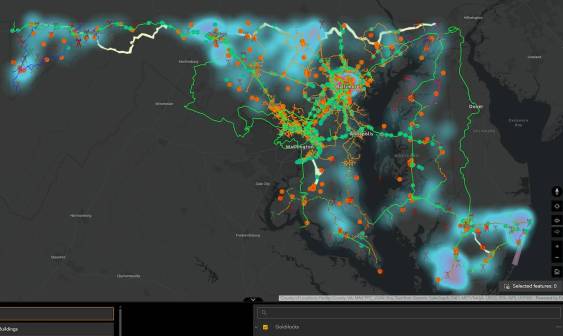Rural broadband bill cruises through Maine legislature

In a boon for what has been identified by some as one of the state’s biggest economic challenges, the Maine legislature showed strong support for a bill to boost funding for rural broadband on Monday.
The House initially voted in support of the bill (116-29), and the Senate also recommended the bill’s passage without a roll call vote. The legislation — called An Act To Encourage Broadband Coverage in Rural Maine — would replace the state’s existing broadband office, the ConnectME authority, with a new body, the Maine Broadband Initiative, and divert $6.25 million in general funds toward bonds the initiative would use to improve rural connectivity. The existing broadband office receives $1 million annually.
The legislation, which still requires action from both chambers and funding the budget-writing committee, would help remediate the state’s lagging broadband speeds, which were identified as second-to-last in the nation, according to a 2013 report from the office of Republican Gov. Paul LePage. Broadband data aggregator BroadbandNow lists Maine as the 22nd most connected state in the nation, with broadband coverage across 88 percent of the state’s geography.
The bill, pushed by Democratic Sen. Shenna Bellow, would require about $136,000 annually to pay the salary of the initiative’s director. The 29 House members who voted against the bill were all Republicans, many of whom characterized it as wasteful spending. Many of their GOP colleagues voted in favor of the legislation, including Norman Higgins, who called it “a modest proposal.”
Telecommunications lobbyists denied Maine’s connectivity issues at the hearing, according to the Associated Press, while the Telecommunications Association of Maine said LePage’s budget would direct telecommunications excise tax revenue back to municipalities.
The latest broadband legislation follows a bill introduced earlier this year — called An Act To Encourage Broadband Development through Private Investment — that would create new requirements and constraints for municipalities seeking to offer broadband service through operation of their own networks in Maine. Prerequisites for potential municipal providers would include completion of feasibility studies, and the holding of a referendum. The provider would also be limited operationally, with regard to rates, subsidies, and antitrust liability protections.
Municipal broadband advocacy groups like the Institute for Local Self-Reliance label bills like this one as tools for the telecommunications industry to limit competition, while taxpayers associations typically argue the measures are necessary to ensure that large scale projects are entered carefully. Controversial research published by University of Pennsylvania Law School professor Christopher Yoo in May found that, according to certain projections, municipal networks are frequently financially unviable.






